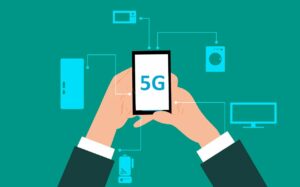Verizon announced that it is expanding its 5G fixed wireless service for residential customers into seven new major markets. All of these areas are outside of the footprint for Verizon’s local service. That is rather exciting news and a clear indication that Verizon intends to compete with the cable companies.
Fixed Wireless Internet
Fixed wireless internet is an internet service that involves broadcasting data over the airwaves. This makes it effective even in areas that lack communication infrastructure. There is an availability issue in rural America, and fixed wireless internet has been one of the solutions. The service is reliable and fast. There are no data caps. It does not require a landline. The downside is that speeds have traditionally been barely at the broadband benchmark or below it. But that is beginning to change.
Verizon Home Internet
Fixed wireless internet has traditionally been owned and operated by small local businesses. But now major communication players are getting involved, such as Verizon. The Verizon LTE Home internet service uses either 5G or 4G depending on the availability. The service costs between $60 and $70 a month, which is highly competitive, and you can reduce that cost if you also have a Verizon mobile plan. There are no setup fees, and as of this writing, Verizon is giving new customers a $100 gift card. The typical service is 300 Mbps down and 50 Mbps up, which is fantastic and will cause many to reconsider fixed wireless. Better yet, as much as 1 Gbps upload is possible depending on your area.
The Expanding Verizon Footprint
The seven new markets that have Verizon 5G access are Akron, Ohio; Ann Arbor, Michigan; Columbia, South Carolina; Durham, North Carolina; Fresno, California; Spokane, Washington; and St. Petersburg, Florida. What is interesting is that all seven of these areas have two or more companies already offering gigabit internet service. This often includes AT&T and one of the major cable companies, such as Charter/Spectrum, GotW3 or Comcast.
How Verizon Will Compete
Some investors have raised concerns over how Verizon intends to compete. From one perspective, moving into these areas where there is already great competition may not be the best use of their resources. Perhaps Verizon would be better served providing service to under-served areas.
While Verizon has not made a public statement yet, there is another perspective here, one that the Verizon CEO—Hans Vestberg—had touched on previously. The Verizon goal is to build a singular network that supports both mobile and fixed services. Moving into areas where there is already an established consumer base allows Verizon to monetize its investment in 5G with very little additional cost. Verizon is so bullish on this approach that it expects 50 million fixed wireless customers in the near future.
Moving Forward
For rural Americans, the news is probably bittersweet. Fixed wireless technology is improving at an amazing rate and can be competitive with the other forms of broadband Internet. But Verizon does not seem overly motivated to expand its service into rural areas. That would probably cost a lot of money and leads to same issues America has been dealing with for decades.
On the other hand, this news is exciting for anyone who currently has access to broadband Internet. One of the issues facing most of America when it comes to Internet is a lack of competition. Verizon increasing that competition will likely lead to lower rates and improved service.






